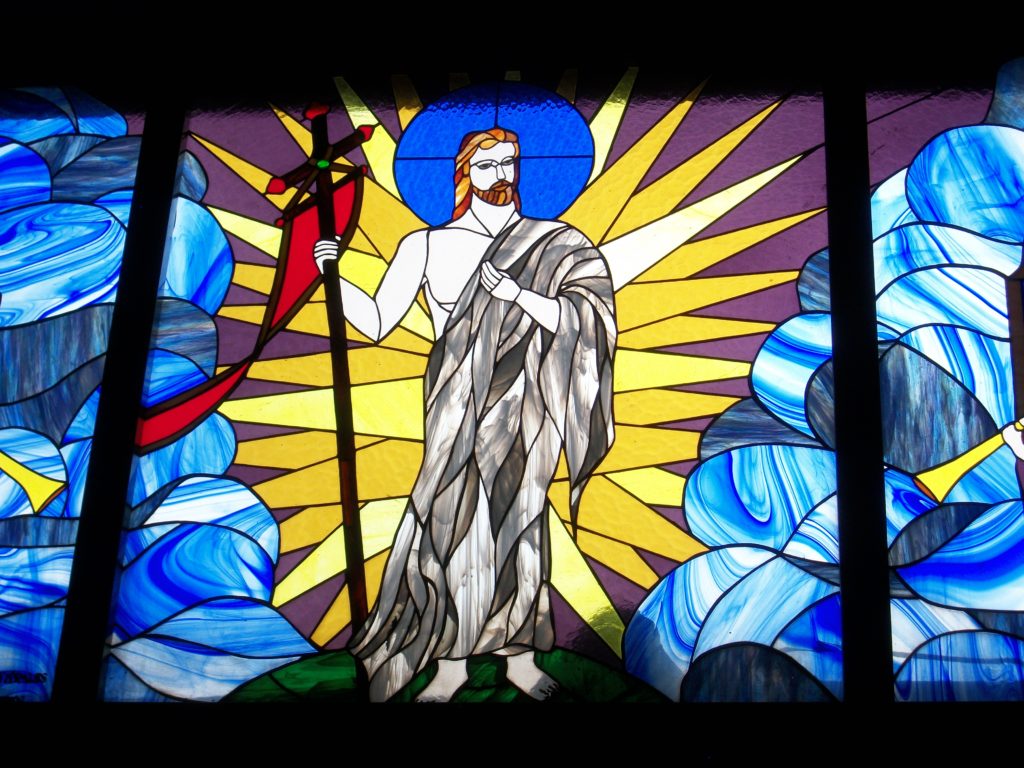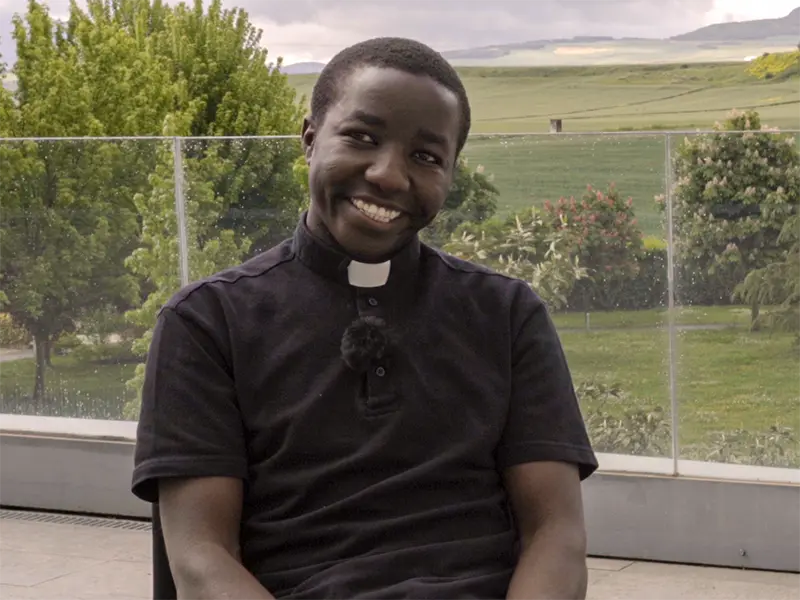Reflection by Bishop Enrique Díaz: “We believe and that is why we speak”
X Ordinary Sunday

Mons. Enrique Díaz Díaz shares with Exaudi readers his reflection on the Gospel of this Sunday, June 9, 2024, titled: “We believe and that is why we speak.”
***
Genesis 3, 9-15: “The Lord put enmity between the serpent and the woman.”
Psalm 129: “Forgive us, Lord, and we will live.”
2 Corinthians 4, 13–5,1: “We believe, and therefore we speak.”
Saint Mark 3, 20-35: “Satan has reached his end.”
What was Jesus like in his daily life and his relationships with his friends? He describes it in the passage of this day. Jesus comes down from the mountain where he had been in deep prayer and closeness with God and enters a house. Two different places? Yes, but very related. From the experience of God, his Father, Jesus moves on to the intimacy offered by the smallness and narrowness of a house. That is where he preaches and lives the gospel, that is where it begins with the expulsion of demons, lies and injustice, that is where the community can be fully lived. Our houses now, most of them small, should also be an expression of God’s love, schools of honesty and justice. They would also have to share Good News, listen and mitigate needs. How cold our houses are sometimes! They are not welcoming, you feel the cold of indifference, the cold of the absence of time and disposition. How it hurts to be despised by the people we love and are closest to us! How our ingratitude and indifference hurts them too! Jesus enters a house and transforms it, and today we ask him to enter our houses and transform them into homes of love, understanding and harmony.
The second verse of this passage would seem disconcerting at first glance: his relatives distance themselves from him and call him crazy. But if we think about it, we will see that they would have their reasons and that the same thing happens today. They call Jesus crazy because he offers and promises a world of love. They claim that it is not possible, and they want to get it out of the way. Furthermore, they call him crazy because he offers forgiveness and says it is the only way to overcome violence. Likewise, they call him crazy because he demands true love that is faithful, constant and forever. They call him crazy because he prefers the poor, while the great look at them with contempt, consider them backward and reject them. They call him crazy because he lives and preaches a gospel where we are all important, where we are all worth the same, where we are all children of God. And by calling Him crazy, they separate themselves from Him and justify rejecting Him so as not to follow Him and be able to continue a path of selfishness, materialism and injustice. And we let him enter our house? Or do we also call Him crazy and turn away from Him?
For the wise and knowledgeable scribes, Jesus becomes a serious problem: he questions their teachings, undermines their authority and gives a new spirit to the law. The best way to discredit him is defamation and doubt. Just like modern candidates, they assume the maxim: “defame, defame, in the end the doubt remains.” They act in the same way as the snake that caused Adam and Eve to fall based on lies. But with Jesus the occurrence is not so happy because they accuse him of being demon-possessed when he expels the demons from his poor victims. The accusation, although inconsistent, is serious, since it should be punished by stoning. But arguments are not valid against the facts, because the demons are subjected to “He who is stronger.” Veiled and implicit is the answer: they are the ones who are subjected to the power of the devil: the demon of power, the demon of envy, that of pride and ambition. Being subjected, they are not able to discover the true Messiah and do not accept being liberated, remaining tied to their own demons. What demons bind our hearts and prevent us from discovering Jesus as the true liberator?
Saint Mark closes this scene with a paradigmatic image: while those who believed they had family rights, with ties of flesh and blood, are being left aside. Those seated around the Master, simple and eager for his Word, are recognized as his true family. “He who fulfills the will of God, that is my brother, my sister and my mother” will be the sentence that opens the horizons of the new family. Those who have opened their hearts to his Word and, stumbling because of his weaknesses, follow with enthusiasm and joy in his footsteps. Those who, forgetting the security and sanity of wealth and possessions, allow themselves to be infected by the madness of brotherhood and service of which he has set an example. Those who break the bars and borders to shake the hands of all the peoples and all the races that the Lamb has united with his Blood. Yes, the new family of Jesus is supported by love and dedication. And there is no ignorance of Mary, his mother, since she has been a daring and revolutionary example of that love.
Saint Mark still leaves us with a thorn stuck deep inside: “He who blasphemes against the Holy Spirit will never have forgiveness.” How can we understand this condemnation, especially now that Pope Francis has constantly revealed to us the merciful love of the Father? It is not a limitation of Fatherly love nor of the effectiveness of the power of the Spirit. To blaspheme against the Spirit is to deny the great liberation that Jesus announces in the name of his Father; it is rejecting the truth with open eyes; It is calling darkness light and light darkness; It is defaming the bearer of the Spirit by accusing him of being demon-possessed. It is not letting ourselves be loved by God even though we are living immersed in his goodness.
Let’s get closer to Jesus. Let’s listen to his words. Let’s define our position. It is true that his obsession with loving without measure seems crazy; but his madness is a madness of love that opens immense horizons to a new humanity embraced in the infinite and unconditional love of the Father. Let’s let ourselves be loved, infected by that madness. Let us live with Jesus, his madness of love.
Father God, Good Father, who has entrusted to your Son the manifestation of your infinite love, infect us and sustain us in this madness of love that builds the new family, without limits, without borders, without conditions. Amen.
Related

Reflection by Bishop Enrique Díaz: Alleluia, alleluia
Enrique Díaz
20 April, 2025
5 min

Christ is Risen! Alleluia! Commentary by Fr. Jorge Miró
Jorge Miró
20 April, 2025
3 min

Easter: Mystery of Freedom
Carlos J. Gallardo
20 April, 2025
5 min

“Being Catholic in Tanzania is a source of pride”
Fundación CARF
16 April, 2025
6 min
 (EN)
(EN)
 (ES)
(ES)
 (IT)
(IT)

